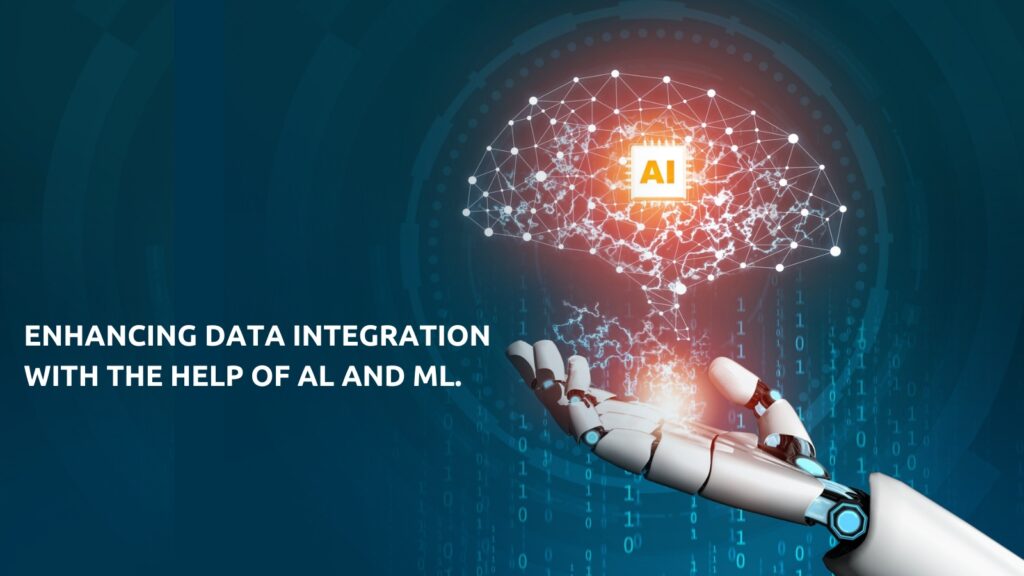
In today’s data-driven world, businesses rely heavily on accurate, timely, and comprehensive data to make informed decisions. Data integration plays a crucial role in ensuring that organizations have a unified view of their data from various sources. However, as the volume and variety of data sources continue to expand, traditional methods of data integration are often insufficient to handle the complexity of modern data ecosystems. This is where Artificial Intelligence (AI) and Machine Learning (ML) come into play, revolutionizing the way data integration is performed. In this blog post, we will explore how AI and ML technologies are enhancing data integration processes and the benefits they bring to businesses.
The Challenges of Modern Data Integration
Before diving into the role of AI and ML, let’s briefly discuss the challenges that organizations face with traditional data integration methods:
Data Variety: Organizations today deal with a wide range of data formats, including structured, semi-structured, and unstructured data. Traditional integration methods struggle to handle this diversity.
Data Volume: The sheer volume of data generated every day can overwhelm traditional integration approaches, leading to delays and inaccuracies in data processing.
Real-time Requirements: Businesses increasingly require real-time or near-real-time data integration to support agile decision-making. Traditional batch processing methods may not meet these demands.
Data Quality: Ensuring the quality and accuracy of integrated data is a significant challenge. Mismatched or inconsistent data from different sources can lead to incorrect insights.
AI and ML in Data Integration
Artificial Intelligence and Machine Learning technologies have brought transformative changes to various industries, and data integration is no exception. Here’s how AI and ML are enhancing data integration processes:
Automated Data Mapping: AI can analyze data structures across different sources and automatically create mappings between them. This significantly reduces the manual effort required for data mapping and transformation.
Schema Matching: ML algorithms can learn from existing data mappings and infer mappings for new sources, even when the schemas differ significantly. This adaptability is crucial in handling diverse data formats.
Data Cleansing: ML models can identify and rectify inconsistencies or errors in the data. These models learn from historical data quality issues and become more accurate over time.
Real-time Integration: AI-powered systems can monitor data streams in real-time, identify relevant data, and integrate it into the target system immediately. This supports real-time analytics and decision-making.
Semantic Integration: AI can understand the context and meaning of data elements, enabling better semantic integration. This leads to more accurate and context-aware data transformations.
Benefits of AI and ML in Data Integration
The integration of AI and ML into data integration processes offers several advantages to businesses:
Faster Integration: AI and ML-driven automation reduce the time required for data integration tasks, allowing organizations to access insights sooner.
Improved Accuracy: ML algorithms enhance data quality by identifying and rectifying errors, leading to more accurate analysis and decision-making.
Scalability: AI-powered systems can handle large volumes of data and adapt to changing integration requirements, ensuring scalability as data sources grow.
Adaptability: ML models can adapt to new data sources and formats without extensive manual intervention, enabling quicker onboarding of new data streams.
Enhanced Insights: AI-powered integration allows businesses to uncover insights from a wider range of data sources, leading to a more comprehensive view of operations.
Conclusion:
In the era of big data, organizations cannot afford to rely on traditional data integration methods alone. The complexities of modern data ecosystems require adaptive and intelligent approaches. AI and ML technologies provide the means to tackle these challenges by automating tasks, improving data quality, and enabling real-time integration. As businesses continue to invest in data-driven strategies, integrating AI and ML into data integration processes will become a critical step towards achieving competitive advantage and informed decision-making.
Our AI and ML roadmap will revolutionize the way you do business. By adopting our proven strategies, you can expect to see a significant increase in performance and productivity. Brillius expert team has designed a customized plan that will streamline your development process, reduce downtime, and improve collaboration across teams.
Contact us today to learn more!